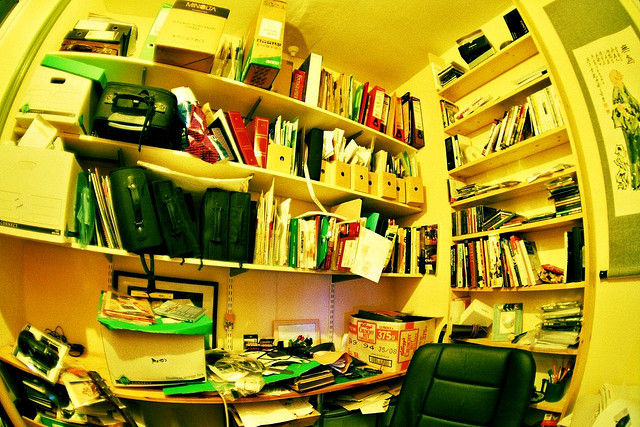It’s the ultimate first-world problem, but most of us in the Western World are plagued with having too much stuff rather than too little.
Being raised by someone with a hoarding problem, I’m probably more aware than most people of the problems of having too much stuff. I thought I had a handle on my possessions, but last year, I caught myself complaining that my 1,400-square-foot house was “too small” for all my stuff.
It took me aback and forced me to confess I wasn’t the minimalist I wanted to be or thought I would be. My then five-year-old daughter and I had too much stuff. Even though regular weeding was the norm, I kept acquiring stuff to replace what I got rid of.
This begged the question: How do I change this?
Despite various books and websites proclaiming to be committed to a clutter-free life, I noticed most of them dealt more with how to hide or store clutter than with how to get rid of it.
Salvation came in the form of a book a book called “The Life-Changing Magic of Tidying Up: The Japanese Art of Decluttering and Organizing,” by the Japanese cleaning consultant Marie Kondo. I usually take “life-changing” claims with a huge grain of salt, but Kondo’s advice has actually changed my life.
Simply put, the decision to keep something comes down to this: Do I love it?
If not, out it goes.
Another of Kondo’s helpful tips is to sort by categories instead of by rooms. For example, when you’re sorting your clothes, gather it all together, no matter what room they were in.
When I did this, I was amazed by how much stuff I had—especially when it came to clothes and personal care items like makeup and body products. I had so much of the latter, I could’ve gone for at least a year without buying anything new!
Asking myself if I loved something and answering in the negative made me stop and wonder why I keep stuff I don’t like. In the case of personal care products, I was unaware I already had many of the items I was purchasing, whereas with stuff like old school work, letters from former lovers and photos, I realized I had a desire to hang on to the past even though it wasn’t necessarily happy.
Looking deeper into why I was so reluctant to let go of certain things also made me think of what I wanted to leave behind for my daughter: Did I want her to spend hours going through my stuff and sending the vast majority of it to the dump or a thrift shop?
No, I did not.
If I’m being painful honest with myself, I have to admit that most of things I own only have value to me. If my daughter sees the faded black cocktail dress hanging in my closet, she has no way of knowing that I kept it because I wore it to an amazing party nearly 15 years ago in London. But even if I tell her, she wasn’t there and can’t know what that it meant to me. And in all sincerity, keeping it isn’t going to transport me back to that time. I have the memories, so why do I need the dress?
As of this writing, I’ve eliminated nearly 10 percent of my possessions. I’m hoping to whittle them down even more.
While I’ll still probably have more stuff than I ever really need, at least my closet shelves won’t resemble the aisle of a CVS or Goodwill.
As much as I love to own things, I don’t want them to ever end up owning me.
Author: Kimberly Lo
Editor: Evan Yerburgh
Image: Flickr











Read 10 comments and reply